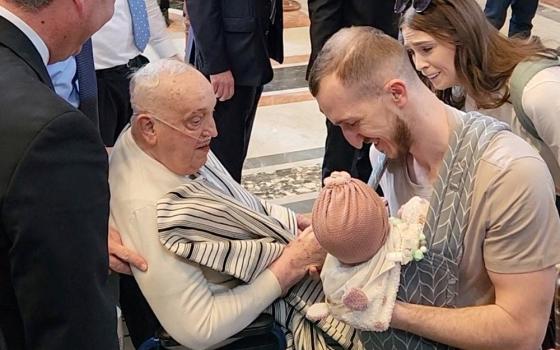David Gibson of Religion News Service shares some of the latest reactions of traditionalist Catholics to the early days of the Francis papacy.
Gibson reports that a conservative blogger, Katrina Fernandez, asks “how can I love a pope who doesn’t even want to be pope.” To which question I am compelled to ask whether she loved Benedict XVI, who very clearly did not want to be pope either.
Philadelphia Archbishop Charles Chaput notes that “Francis will have to care for them (conservatives), too.” Is he suggesting that in the recent past nobody was bothering to care for the more liberal members of the community?
Yet Michael D’Antonio, author of a book on the clergy abuse scandal, remarks that “this (conservative) constituency cannot sustain the church in the long term.”
Many traditionalists seem to feel that because of their loyalty to the church during these last few decades they are entitled to special consideration, and their views should somehow take precedence over others. D’Antonio seems to be making the point that because of demographics and worldwide trends, the church will continue to lose many of its members unless it finds a way to reach out to those with differing views.
In an interesting twist, Ross Douthat of The New York Times suggests it may be a good thing for conservatives to finally be disagreeing with the pope. He sees it as potentially positive to recognize that the church and the pope are not one and the same thing. To Douthat these disappointments with Pope Francis are seen as a healthy divergence from what he calls “papolatry.”
It is an exciting time to be a Catholic again. Unfortunately, it has been a long time since it was possible to make that statement. There are unquestionably many challenges ahead. Everything I have seen so far, however, suggests to me that Pope Francis will be able to make the right moves to lead this church forward and bring both sides of the Catholic divide together in the process.




